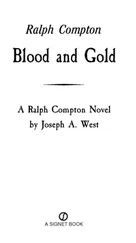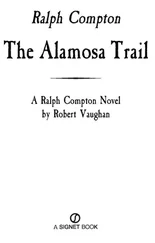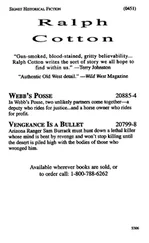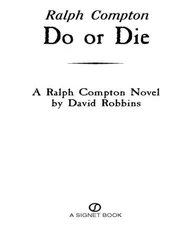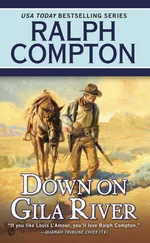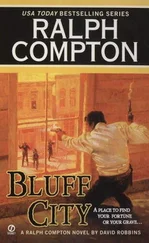Ralph Compton - West of the Law
Здесь есть возможность читать онлайн «Ralph Compton - West of the Law» весь текст электронной книги совершенно бесплатно (целиком полную версию без сокращений). В некоторых случаях можно слушать аудио, скачать через торрент в формате fb2 и присутствует краткое содержание. Год выпуска: 2008, ISBN: 2008, Издательство: Thorndike Press, Жанр: Старинная литература, на английском языке. Описание произведения, (предисловие) а так же отзывы посетителей доступны на портале библиотеки ЛибКат.
- Название:West of the Law
- Автор:
- Издательство:Thorndike Press
- Жанр:
- Год:2008
- ISBN:9781410409225
- Рейтинг книги:4 / 5. Голосов: 1
-
Избранное:Добавить в избранное
- Отзывы:
-
Ваша оценка:
- 80
- 1
- 2
- 3
- 4
- 5
West of the Law: краткое содержание, описание и аннотация
Предлагаем к чтению аннотацию, описание, краткое содержание или предисловие (зависит от того, что написал сам автор книги «West of the Law»). Если вы не нашли необходимую информацию о книге — напишите в комментариях, мы постараемся отыскать её.
West of the Law — читать онлайн бесплатно полную книгу (весь текст) целиком
Ниже представлен текст книги, разбитый по страницам. Система сохранения места последней прочитанной страницы, позволяет с удобством читать онлайн бесплатно книгу «West of the Law», без необходимости каждый раз заново искать на чём Вы остановились. Поставьте закладку, и сможете в любой момент перейти на страницу, на которой закончили чтение.
Интервал:
Закладка:
‘‘After Shannon and Donovan.’’
‘‘No, you’re not,’’ the inspector said. ‘‘John, you’re in no shape to go anywhere. I’ll take care of Donovan.’’
‘‘Can you ride a horse, Inspector?’’ McBride asked.
‘‘No, but I can commandeer one of the wagons at the station.’’
‘‘Too slow. Donovan has a head start—you’d never catch him.’’ McBride smiled. ‘‘You can follow on behind me.’’
‘‘In what direction?’’
‘‘That, I don’t know. At least, not yet.’’ McBride stepped toward the door, then stopped. ‘‘Inspector, you’ll find a dead man in the box of the lead wagon. He’s wearing my hat and probably has my Smith & Wesson, money belt and watch. Get them for me, will you?’’
‘‘All right, that’s the wagon I’ll commandeer,’’ Byrnes said. He watched McBride walk unsteadily to the door. He said, ‘‘John, be careful. We’ll be right behind you.’’
McBride nodded his thanks, stepped out of the saloon into the daylight and headed for Marshal Clark’s barn.
There was a grim determination in McBride. He intended to bring Shannon Roark and Sean Donovan to justice.
The question was—where were they?
Chapter 32
John McBride was halfway to the barn when he saw a plump woman in a gingham dress striding purposefully along the boardwalk toward him. She stopped when she was a few feet away.
‘‘Would you be John McBride?’’ she asked. Then she answered her own question. ‘‘Judging by the description he gave me, you must be.’’ She smiled. ‘‘Lordy, you look all beat-up, but you’re not near as ugly as he said.’’
‘‘What can I do for you, ma’am?’’ McBride asked. He was irritated. This was no time for chitchat.
‘‘My name is Lavender Coffin and I do for the marshal now that his . . . er . . . lady is gone.’’
By this time Dolly was probably riding the cushions of the orphan train. McBride felt a small sadness at her departure, which he could not fully explain.
‘‘How is the marshal?’’ he asked.
Lavender shook her head. ‘‘Not well. He sent me to look for you, if you were still alive, like. He needs to talk to you.’’
McBride nodded. ‘‘I’ll see him.’’
‘‘Come back to the house with me,’’ the woman said. ‘‘I’ll wash that blood off your face and head.’’ She gave him a sympathetic smile. ‘‘You poor thing.’’
Lavender had opened the curtains of Clark’s room, letting in a stream of angled sunlight where dust motes danced. The room smelled of furniture polish, baking apple pie and the slow rot of the man in the bed.
‘‘Mrs. Coffin said you wanted to see me, Marshal,’’ McBride said. He shrugged an apology. ‘‘I don’t have much time.’’
‘‘I know. I saw Shannon Roark riding out of town with a man. I figured after all the shooting I heard earlier that you’d be going after them. That is, if you were still standing.’’
‘‘In what direction were they headed?’’ McBride asked, his interest quickening.
‘‘Northeast.’’ Clark studied McBride’s face. ‘‘She was smiling at the man. Didn’t look much like a captive to me.’’
‘‘She’s not.’’ McBride let the flat statement lie there.
The marshal understood and did not push it. ‘‘If I was a gambling man, I’d bet the farm that they’ll stay west of the Picketwire, away from the rough, high-ridge country. They’re probably heading for Las Animas on the old Santa Fe Trail, where they can catch a train east.’’
‘‘Then I’ve got to be on my way, Marshal Clark. Thanks.’’
The man in the bed nodded. ‘‘Take care, McBride.’’
McBride stepped to the door, then stopped. He turned and said, ‘‘I killed Hack Burns. I thought you’d like to know that.’’
Clark’s grin was wide. ‘‘Thank you, McBride. Now I can die easy.’’
McBride walked to the barn and saddled the mustang, trying to fend off most of Lavender’s attentions. But the woman, a bowl of soapy water and a washing cloth in her hands, was determined. She cooed over him, dabbed blood from his face and head, then applied a generous amount of stinging stuff with a cotton swab.
‘‘I know that must smart, poor dear,’’ she murmured. ‘‘But we don’t want a nasty infection, do we?’’
It was with considerable relief that McBride swung into the saddle, told Lavender to let Inspector Byrnes know where he was headed, then took the trail to the northeast. After an hour he crossed Timpas Creek. The stream was dry, its rocky bottom bright with yellow, purple and red wildflowers.
Flat, rolling country lay in front of him, rising abruptly in the east to a rocky ridge that sloped away to the Picketwire. The sun had dropped in the sky, but the day was still hot and the land drowsed in a deep silence, the only sound the steady thud of the mustang’s flinty hooves and the creak of saddle leather.
McBride was not a tracker, but he was enough of a detective to follow the trail of the two horses ahead of him. Confident that he would not be followed, and unused to riding, Donovan was setting an easy pace. McBride rode up on a small green meadow where underground water nourished a stand of cottonwoods. Someone, no doubt Shannon, had stopped there and picked wildflowers. McBride counted a dozen broken stems of buttercup, blue iris and corn lily and there were probably more he could not see.
A buttercup, wilted, had strayed from Shannon’s hand and lay on the grass like a drop of gold fallen from the sun. McBride picked up the bloom and studied it for long moments. Finally he touched the flower to his lips, then carefully tucked it away in a pocket.
Grief and a dark sense of loss took hold of McBride and he let out a long, shuddering sigh that had its genesis deep inside him where the worst of hurts dwelled.
A flock of crows descended on the branches of the cottonwoods, wheeling like pieces of charred paper from out of the blue sky. They called out to one another noisily, for now ignoring the man who stood head bowed in pain, a gang of ragged ruffians who stood ready to mock him should he not quickly move along.
McBride stepped into the saddle and resumed his ride to the northeast. Behind him, the sun began its journey to the western horizon and the shadow of man and horse stretched longer across the prairie grass.
Three hours later, as the evening became night and the first stars appeared, McBride saw the light of a campfire ahead of him. He eased the Colt in his waistband and rode toward the camp . . . as around him the coyotes began to sing their requiem for the departed day.
McBride dismounted when he was still two hundred yards from the camp. He covered the rest of the distance on foot, trusting to the darkness to keep him hidden. When he was close, he saw Shannon and Donovan standing in each other’s arms near the guttering fire. Shifting, scarlet shadows streaked the night around them and the wood crackled and snapped, sending up small showers of sparks.
Donovan kissed Shannon hard and long, then pushed her away from him, holding her at arm’s length. He grinned and said, ‘‘I’ll have a lot more of that later, but right now it’s time for you to put some supper together.’’
‘‘Don’t bother.’’ McBride spoke from the gloom, his voice hollow as a death knell. ‘‘You won’t have time to eat it.’’
Sean Donovan was an affable, talkative man, but in that instant he realized the time for talk was not then. He turned, drawing from under his coat, his wild, angry eyes flashing ruby red in the firelight.
McBride drew from the waistband and his gun flared. Hit hard, Donovan staggered and tried to bring his Smith & Wesson Russian to bear. McBride fired again and the man fell heavily, his arm landing across the fire, throwing up a crimson fountain of sparks.
Читать дальшеИнтервал:
Закладка:
Похожие книги на «West of the Law»
Представляем Вашему вниманию похожие книги на «West of the Law» списком для выбора. Мы отобрали схожую по названию и смыслу литературу в надежде предоставить читателям больше вариантов отыскать новые, интересные, ещё непрочитанные произведения.
Обсуждение, отзывы о книге «West of the Law» и просто собственные мнения читателей. Оставьте ваши комментарии, напишите, что Вы думаете о произведении, его смысле или главных героях. Укажите что конкретно понравилось, а что нет, и почему Вы так считаете.

